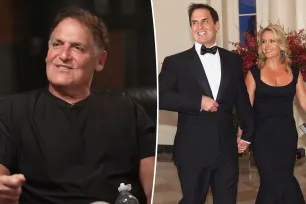Devara generated significant anticipation among fans for two primary reasons: it marked Jr NTR’s first film following the success of RRR (2022) and it was promoted as a groundbreaking venture in Indian cinema. Nandamuri Kalyan Ram, the film’s producer and Jr NTR’s cousin, fueled the hype during the promotions of his film, Devil (2023), claiming, “It has been never done in India. Devara is more than Game of Thrones.” Despite the ambitious effort, the film failed to resonate with audiences, as reflected in the drop of box office numbers over the weekend.
Devara suffered from an overload of subplots, muddling the main narrative and making it feel lengthy and disjointed. Ambitious scenes, such as ritualistic battles, fights between Saif Ali Khan and Jr NTR, and a confrontation between the RRR star and a shark (also shown in the trailer), lacked the intensity found in other pan-Indian films like Rishab Shetty’s dance as Daiva in Kantara or Yash saving a blind old man from goons in KGF Chapter 1, and even Jr NTR’s grand entry with a truckload of wild animals in RRR that expertly built suspense and evoked strong reactions.

While there was an attempt to create a magnum opus, much of the energy was diverted to constructing an expansive pool and set for the film and not on the story and script. In an interview with Sandeep Reddy Vanga, Jr NTR explained that the production aimed for realism, employing cranes to generate artificial waves and motors to create lifelike ripples. To enhance authenticity, rocks were sourced from Karnataka beaches. The action sequences, orchestrated by Kenny Bates, included a 14-day shoot with Saif Ali Khan, and the cast took a month off to rehearse underwater sequences, with Jr NTR training with swimming experts in Mumbai. Despite a 35-day shoot dedicated to this centerpiece, the final result lacked the expected impact.
While the filmmakers invested significant effort into creating visually striking elements, the execution ultimately fell short of delivering a true “wow” factor in terms of cinematography and editing. At three hours long, Devara feels excessively drawn out. The film navigates through tales of ancestors, the legend of Devara, and the protagonist’s growth, while viewers await explanations for a death and the mysterious bodies introduced at the start. The announcement of a sequel raises questions about which plot points were deemed too expansive for a single film. Initially exceeding five hours, the decision to split the release into two parts could have been avoided with a more concise script.
ALSO READ | House of Spoils movie review: Ariana DeBose isn’t allowed to cook in Prime Video’s culinary horror film
Additionally, the songs feel like forced additions, seemingly included to give Janhvi Kapoor screen time, who otherwise is barely seen in the film. The dubbing of these songs in other languages lacks the meticulous attention seen in successful films like Baahubali and Kantara, where music resonated across cultures. In Baahubali, carefully crafted songs enhanced emotional depth, with tracks like “Sivuni Aana” in Telugu and “Kaun Hai Woh” in Hindi evoking intended reactions rather than feeling out of place. Similarly, Pushpa captivated viewers not only through its storyline but also through memorable tracks like “Srivalli”, “Oo Bolega”, and “Pushpa Pushpa,” thanks to thoughtful lyricist and singer choices for various languages. In Kantara, the music seamlessly integrates into the narrative, enhancing the viewing experience.
In the case of Devara, Anirudh Ravichander lacks the nuanced understanding that MM Keeravani and Devi Sri Prasad exhibit.
The collaboration between Koratala Siva and Jr. NTR was rooted in their previous hit Janatha Garage (2018), which, despite a much smaller budget, left a lasting impact through engaging storytelling, memorable music by Devi Sri Prasad, and efficient editing. Devara, despite its hefty budget and advanced technology, failed to recreate that magic.
Ultimately, Devara resembles Om Raut’s Adipurush—an ambitious vision marred by poor execution. It’s time to prioritise strong scripts and concise editing; the trend of sequels and sprawling narratives is posing a threat to the artistry of filmmaking. Not every film can be (or has to be) a Baahubali or KGF. We want standalone films that deliver satisfying experiences. It’s disappointing to see a great vision fall short.
Disclaimer: The copyright of this article belongs to the original author. Reposting this article is solely for the purpose of information dissemination and does not constitute any investment advice. If there is any infringement, please contact us immediately. We will make corrections or deletions as necessary. Thank you.







